
Performance Analysis
Both coolers perform very well at full speed – we don't have a massive amount of data from our new test systems yet but in each of the three either the H80i GT or the H100i GTX achieves top place by a respectable margin. Clearly, there's plenty of cooling potential on tap, but at full speed both fans are spinning at between 2,600 and 2,700 RPM, which is very loud and unrealistic for day to day use. As such, we tested at a variety of other settings to see the impact of lower fan and pump speeds.With the Performance Mode fan curve applied, the differences between the two coolers starts to become clear. On our LGA1150 system, for example, the H100i GTX is 1°C cooler, but what the data doesn't show is the fan speeds – the H100i GTX is not only a little cooler, it's also quieter, with its peak fan speed in this mode being around 200 RPM below that of the H80i GT. On the LGA2011 system, meanwhile, they both achieve the same respectable delta T of 44°C, but the H80i GT was spinning at around 2,000 RPM to maintain this, compared to a more subdued 1,700 RPM on the H100i GTX. Lastly, on the AMD system, the H100i GTX is again cooler, this by 3°C, and quieter. Despite its thicker radiator, the H80i GT seems to offer very little benefit over the H75 in terms of performance – in Performance Mode, the H80i GT has basically the same results as the H75 and a very similar noise level. Only when you ramp its fans to full whack do you see a difference, which suggests the radiator is either too thick or too dense for the added metal to make much impact.
Next, we switched to Quiet Mode, and saw a similar story. The LGA1150 CPU was 1°C cooler with the H100i GTX, the fans of which were spinning below 1,000 RPM (whisper quiet) while those on the H80i GT were closer to 1,300 RPM. On LGA2011 it was the same thing although both coolers were a bit noisier than on LGA1150 on account of the more demanding CPU. On the AMD system, the H100i GTX maintained its prior advantage, with its Quiet Mode actually running cooler than the H80i GT's Performance Mode – in this instance there was a very significant difference in noise between the two.
Corsair also offers the ability to subdue the pump speed, so to test the impact of this we left the fans on Quiet Mode and then did the same to the pump. Pleasingly, temperatures in some tests didn't change at all, while in others the biggest increase we saw was 2°C, so if you're unhappy with the pump noise at full speed you can reduce it a bit without worrying much about performance. We should also note that problematic pump noise has been quite widely reported with these coolers. Personally, we didn't find the noise of our samples to be excessive, though users aiming for maximum silence may do as the pumps are certainly audible (something that can be levelled at pretty much any all-in-one cooler, to be fair) and that holds true in Quiet Mode too.
Conclusion
We'll start with the H80i GT – at £80, it is one of the most expensive 120mm radiator models around, and there are actually a number of 240mm models available for less. On the plus side, it's very well built and about as easy as it gets when it comes to installation. The fan, pump and LED control is also a nice bonus and better implemented than you'll find on other 120mm radiator coolers. It has decent cooling results and is definitely capable of taming powerful, overclocked CPUs, but it really doesn't offer any benefit in performance terms over the H75, which is £15 cheaper. The extra thickness just doesn't materialise into significantly lower temperatures, and we suspect Corsair may have benefited from using less dense fins that let more air through. The Corsair Link capabilities are nice, but not enough to warrant this extra cash, especially as many motherboards have very impressive onboard fan control suites now. As such, the H75 is still our 120mm radiator AIO cooler of choice despite the H80i GT's strengths and customisation capabilities.As for the H100i GTX, it's certainly still on the expensive side relative to competing models, but it does offer very good performance that's better than the H80i GT and at lower noise levels. Also, it costs the same as the H105, but you get the added benefit of the Corsair Link control, so again if you're really into fine-tuning things at a software level then it's a great choice. It also has very good case compatibility thanks to the slimline radiator design, and we're happy to recommend it for high-end builds.
H80i GT Intel LGA1150 Scores
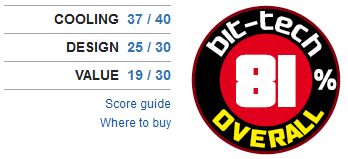
H80i GT Intel LGA2011 Scores
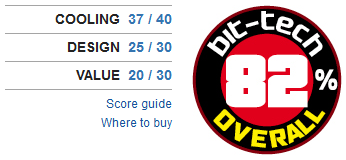
H80i GT AMD AM3+ Scores
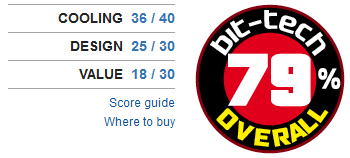
H100i GTX Intel LGA1150 Scores

H100i GTX Intel LGA2011 Scores

H100i GTX AMD AM3+ Scores

H80i GT Intel LGA2011 Scores

H80i GT AMD AM3+ Scores

H100i GTX Intel LGA1150 Scores

H100i GTX Intel LGA2011 Scores

H100i GTX AMD AM3+ Scores

-
Cooling39 / 40
-
Design26 / 30
-
Value23 / 30


MSI MPG Velox 100R Chassis Review
October 14 2021 | 15:04

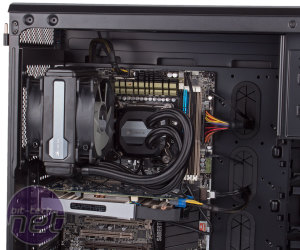
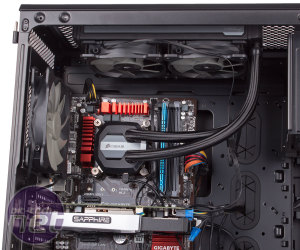
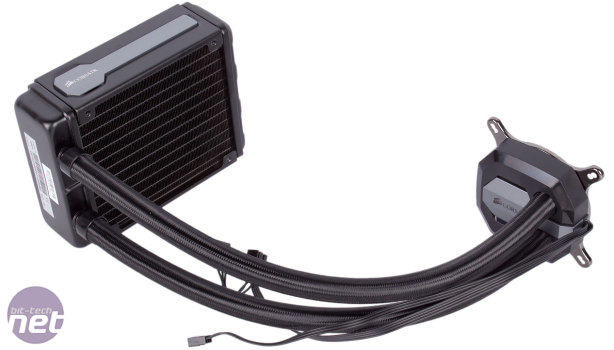
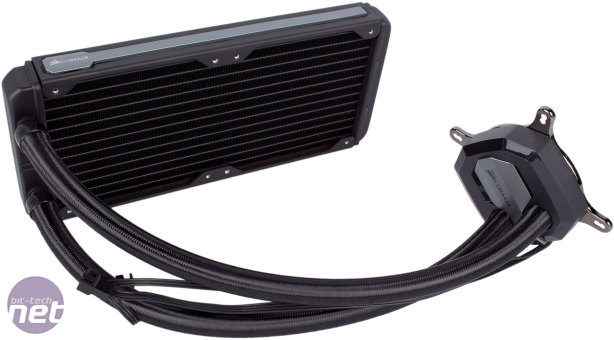
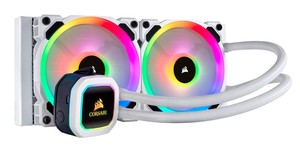






Want to comment? Please log in.